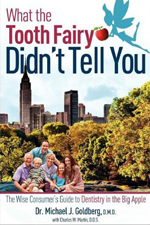He was dejected and devastated.
It was possibly the worst day of his young life.
He stared at the alphabetical list over and over again and he still didn’t see his name.
He missed getting onto the High School Varsity Basketball team.
Sure, he goofed around a bit but as a sophomore was his career done?
He learned a crucial lesson. Never again would he goof around on the court. He would redouble his efforts and always bring his “A” game to everything related to basketball. He spent hours practicing. He woke up early and stayed late doing everything he could think of to excel.
Michael Jordan could have quit yet he persevered. He learned the lesson from his mistake and went on to be the paradigm of a basketball superstar and more.
When people ask me why I’m different than other dentists, I didn’t know what to answer.
During Hurricane Sandy, with the power, internet and cable TV out, I had plenty of time to think.
I’m no Michael Jordan. I do however bring my “A” game to everything I do in Dentistry. I think my patients can tell. I think you can tell when someone’s passionate about what they do.
Passionate people have a twinkle in their eye. They are animated. You can hear it in their voice. You can read it in their words…if you know it’s theirs!
Look for passionate people to care for you. Passion combined with knowledge and skill is the ideal. By reading the book, you’ll be able to assess those too.
To your health,
Michael
